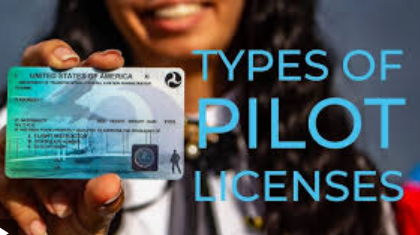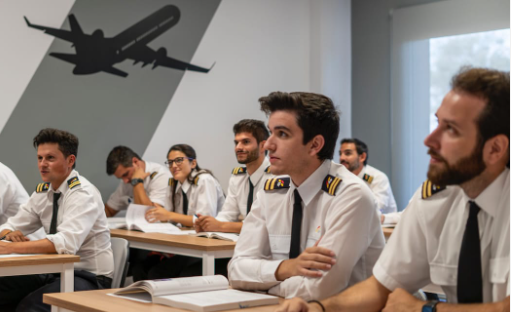Trainning
About Cadet Program
Trust the Experience

Understanding Pilot Licenses
PPL (Private Pilot License): For personal use, requires 40 hours of flight training, a medical exam, and a written test. The focus is on basic flying skills and safety.
CPL (Commercial Pilot License): For professional careers, requires 200 hours of flight training, exams, and a practical test. The focus is on advanced maneuvers and commercial operations.
ATPL (Airline Transport Pilot License): For airline captains, requires 1500 hours of flight experience, rigorous exams, and simulator tests. The focus is on advanced operations and leadership.
Cadet Training Program: For direct airline entry, this intensive 18-24 month program includes ground school, flight training, and simulator sessions. The focus is on airline-specific operations, with guaranteed placement at partner airlines like SpiceJet, IndiGo, and Lufthansa.

Selecting a Flight School
When choosing a flight school, it's important to ensure it meets several key criteria to support your aviation ambitions. Start by confirming the school has accreditation from the Directorate General of Civil Aviation (DGCA), guaranteeing that it follows the necessary training standards. A well-maintained fleet is essential, as it ensures the safety and effectiveness of your practical training. The quality of instructors is equally important; they should be highly qualified and experienced to guide you through both the theoretical and practical aspects of flying. Additionally, the school should offer modern facilities, including classrooms and simulators, to enhance your learning experience. Lastly, transparency in the cost structure is crucial to avoid hidden fees, particularly in programs like the Private Pilot License (PPL), Commercial Pilot License (CPL), or Cadet Training.

The Training Process
Ground School provides a foundation in aviation theory, regulations, and procedures, essential for any aspiring pilot. This phase prepares you for the practical aspects of flying by covering topics like navigation, meteorology, and aircraft systems.
Flight Training is where you gain hands-on experience, applying what you've learned in Ground School. You'll build practical skills in real-world flying conditions, developing the confidence needed to operate an aircraft safely.
Simulator Training offers a controlled environment to practice advanced procedures and maneuvers. This stage allows you to refine your skills and prepare for unexpected scenarios without the risks of actual flight.
Finally, Check Rides are conducted to assess your abilities. Passing these evaluations is necessary to obtain your pilot certification.

Advancing Your Career With Cadet Training Program
To advance in aviation, accumulate flying hours and experience to qualify for advanced licenses and ratings. Consider obtaining additional ratings such as instrument, multi-engine, or type ratings for specific aircraft. Explore various career opportunities, including flying for airlines, cargo operators, or private aviation.
The Cadet Training Program offers a structured path to airline careers, combining ground school, flight training, and simulator sessions.
It prepares you for first officer roles with partner airlines like SpiceJet, IndiGo, and Lufthansa, often guaranteeing job placement upon completion.

Staying Current
Aviation is an ever-evolving field with constant changes in regulations and technology. To stay current, it's essential to engage in continuing education by attending seminars, workshops, and training updates. Additionally, maintaining your certifications is crucial; keeping up with medical and training requirements ensures that your licenses and ratings remain valid. Staying informed and up-to-date will help you meet industry demands and advance your aviation career with confidence.

Resources and Support
ProfessionPilot.in offers a wide range of resources to support your training journey:
Detailed Guides: In-depth articles on various aspects of pilot training.
School Reviews: Comparisons of flight schools across India to help you make informed decisions.
Expert Advice: Access to knowledgeable professionals who can answer your questions and provide personalized guidance.
